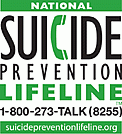Reporting on Suicide: Avoiding "Suicide Contagion" and Other Tips

Usually, reporters covering health topics want to see their stories have real world impact. But there is one circumstance that no journalist wants to see as an outcome of their coverage: suicide contagion.
Research in numerous countries has shown that certain kinds of reporting can increase suicide acts by vulnerable individuals. Prominent coverage, sensational headlines, and descriptions of the method can provide both impetus and information that may lead to “copycat” events. At the same time, many people don’t realize that in most communities there are far more suicides than homicides, in part because suicide is often treated as a private act and not covered in the news like other public health issues.
National consensus recommendations for reporting on suicide were first created in the U.S. in 2001. Updated in 2011, the recommendations have been endorsed by all the leading suicide prevention organizations, federal health agencies, and a handful of journalism associations. But many journalists are unaware of this two-page document which provides simple tips for reducing the possibility of contagion and for improving accuracy in reporting on this sensitive subject.
A new California suicide prevention social marketing campaign, “Know the Signs,” has translated the recommendations into Spanish and provides both the English and Spanish versions on the campaign’s website under the Media link. The campaign, which launches this month, aims to prepare more Californians to prevent suicide by increasing their knowledge of warning signs and helpful resources, and how to talk to someone they are concerned about. The campaign is supplemented by additional activities, including distributing a toolkit on media advocacy and outreach to all counties in the state, and holding forums for media representatives and community members.
Any report on a suicide death, attempt or prevention initiative can include a telephone number to provide help to suicidal people or those who are concerned about them. The National Suicide Prevention Lifeline (800-273-8255 [TALK]) is available 24 hours a day throughout the nation. The recommendations include this information and are also designed to be customized by adding a local crisis telephone number or website.
More information on the recommendations, the research supporting them, and tips for online coverage can be found at reportingonsuicide.org. For more information on the Know the Signs campaign, contact Sherry LeCocq at sherry@adease.com.

